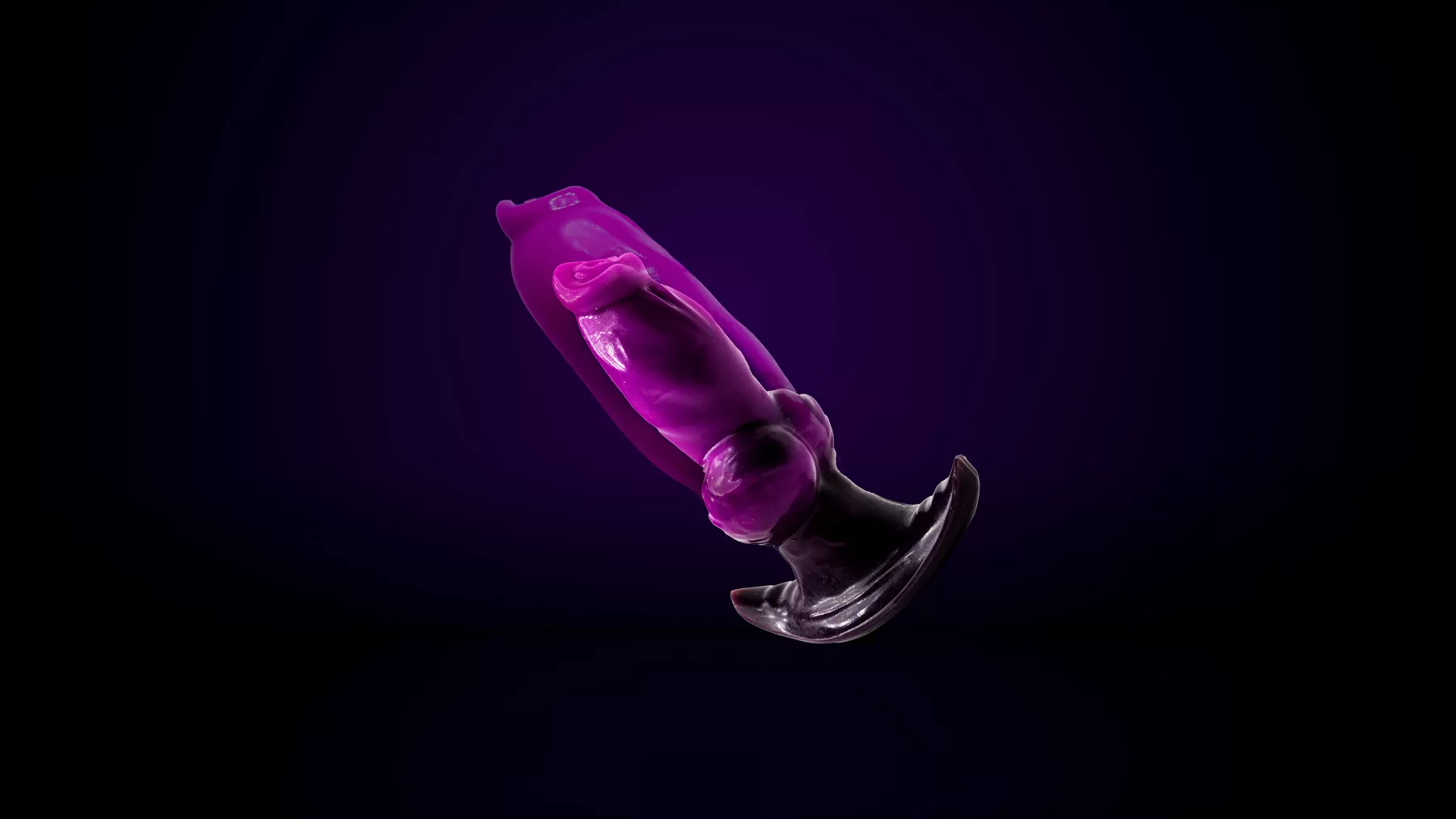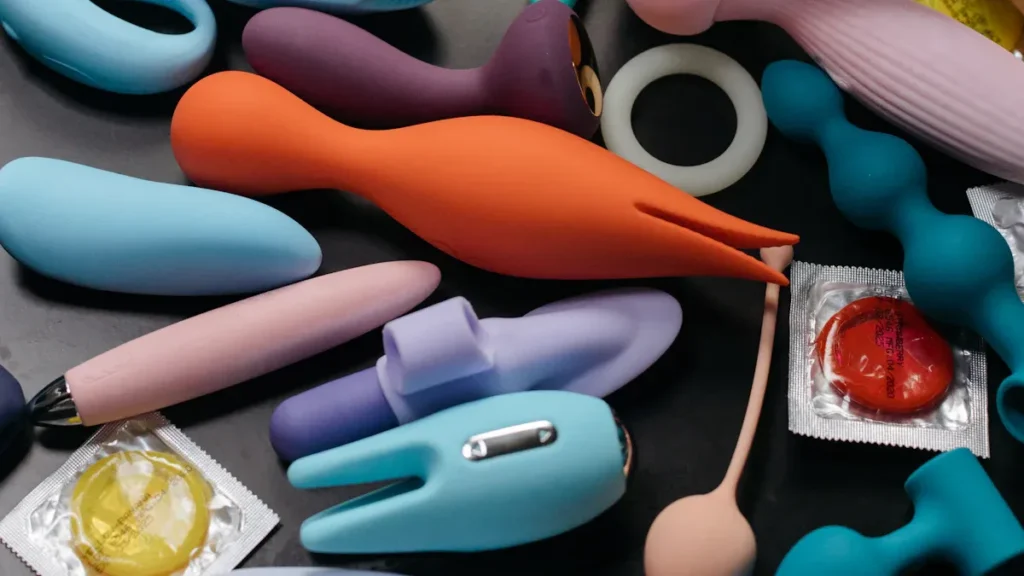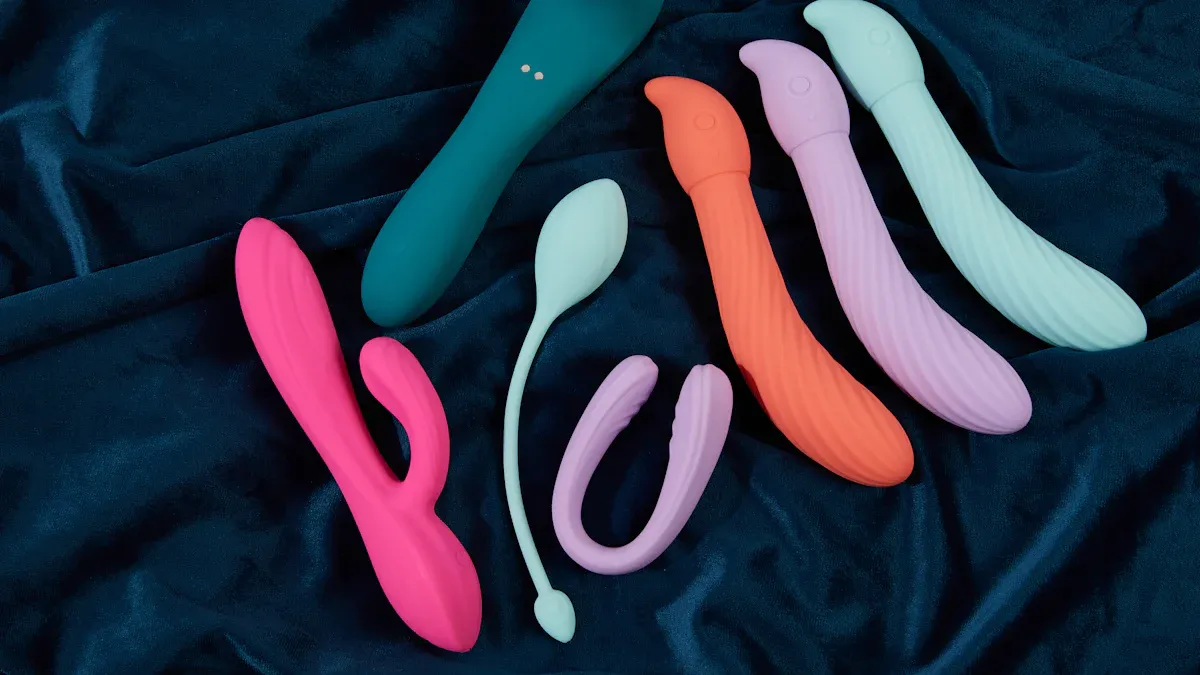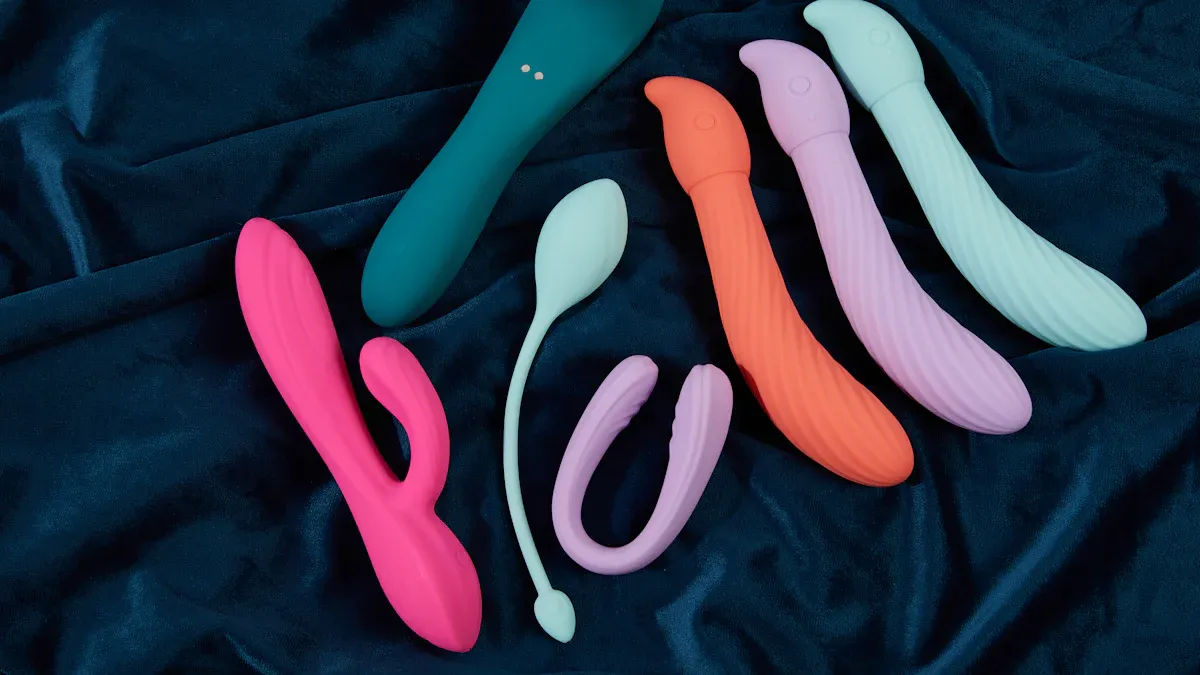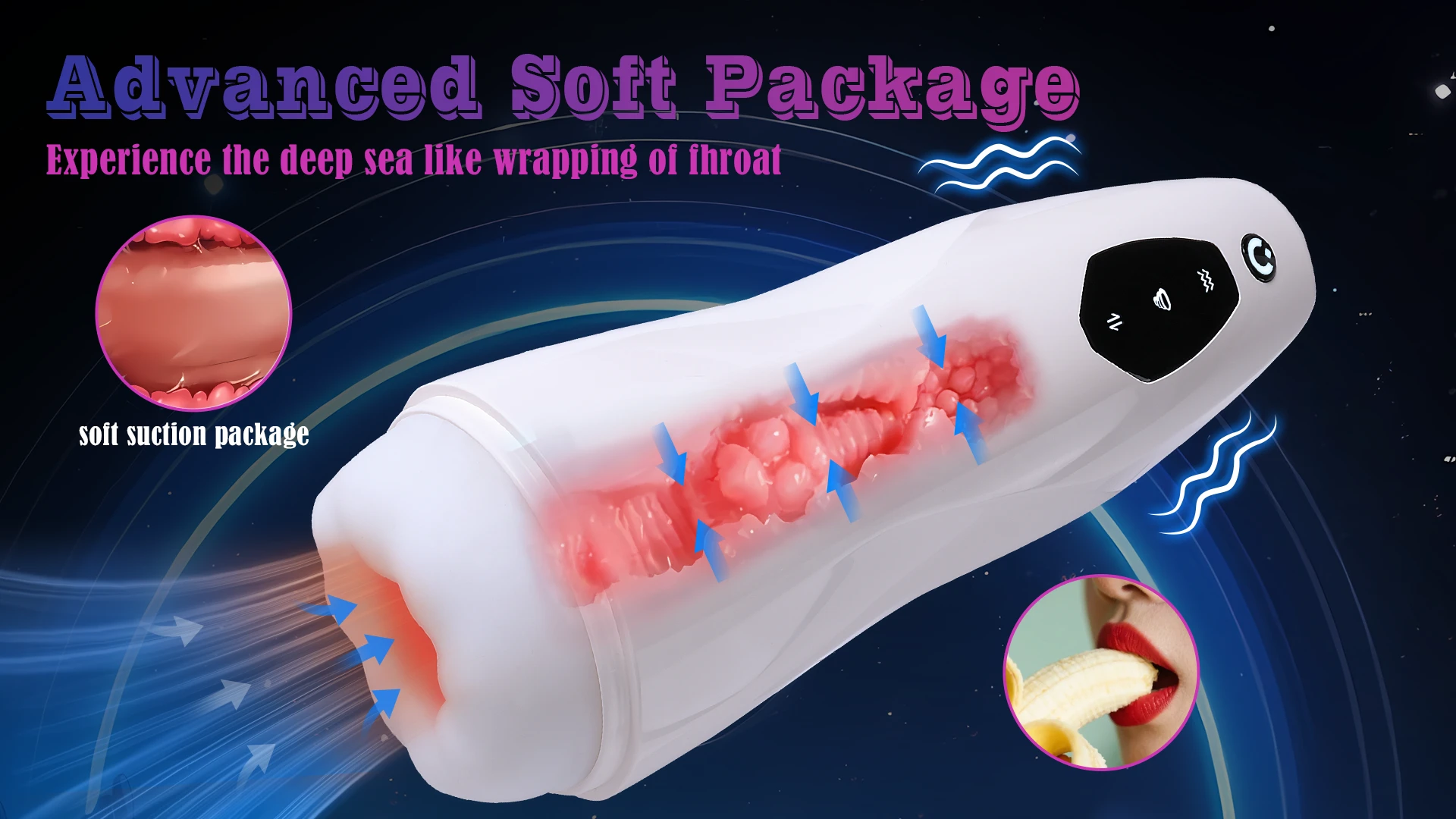Are PVC Dildos Safe to Use in 2025
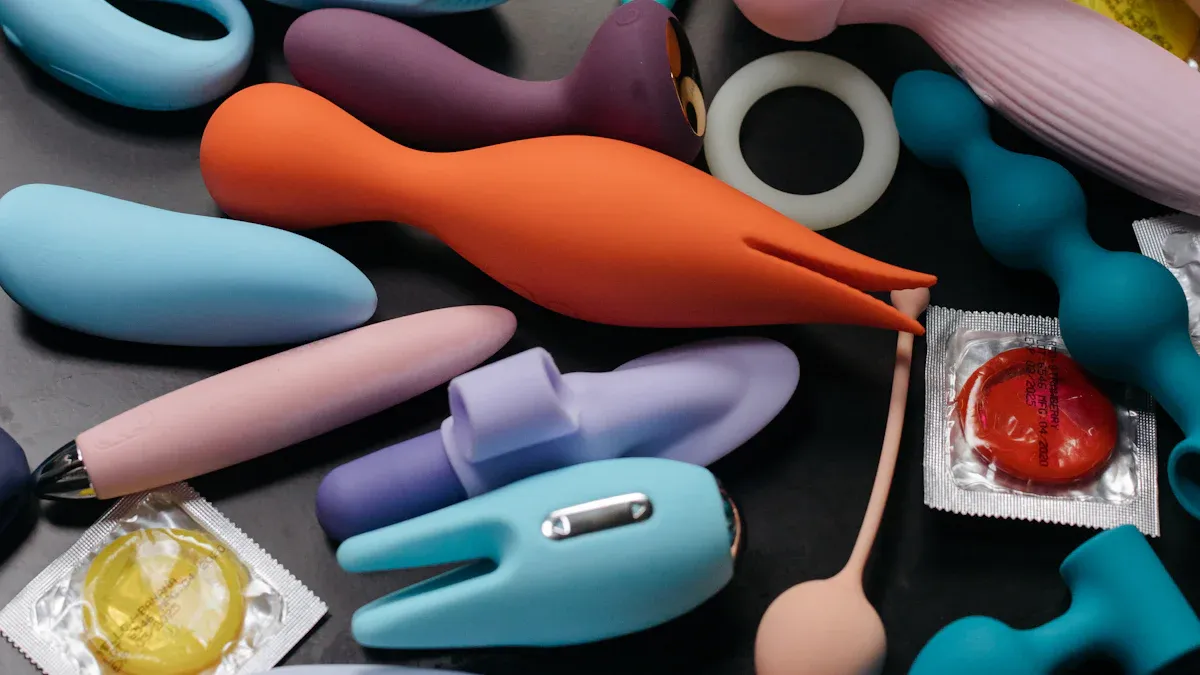
You might ask if pvc dildos are safe to use in 2025. Experts and new studies say these toys have real risks.
PVC dildos usually have phthalates, which experts say may cause cancer and harm to reproduction.
Their porous surface can hold bacteria, so cleaning is tough and health risks go up.
Many people think a strong smell or a “clear dildo” means danger, but that is not always right. Inflatable Dildos and double ended dildo toys made from PVC have these same safety problems. Picking body-safe materials helps you avoid these risks and keeps you healthy.
What Is PVC

Polyvinyl chloride, or PVC, is a type of plastic. You see it in many products, from pipes to raincoats. PVC feels soft or flexible when manufacturers add special chemicals called plasticizers. This material costs less than many other plastics. That is why you find it in many everyday items.
PVC in Sex Toys
You often see pvc sex toys in stores and online. Manufacturers use PVC because it is cheap and easy to shape. They can make many types of dildo with it, including different sizes and colors. Some pvc sex toys look shiny or clear. Others have bright colors or even glitter. You might notice a strong smell when you open a new pvc sex toy. That smell comes from the chemicals inside the plastic.
Note: Not all pvc sex toys are the same. Some may have more chemicals than others. Always check the packaging for safety information.
PVC sex toys feel soft and bendy. This makes them popular for people who want a flexible dildo. You can find many shapes, from realistic to fantasy designs. Some brands claim their pvc sex toys are “phthalate-free,” but you should still be careful.
Why PVC Dildos Are Common
You see pvc dildos in many adult stores because they cost less than silicone or glass toys. Companies can make a dildo from PVC quickly and in large numbers. This helps keep prices low for buyers. Many people choose pvc sex toys because they want to try a new shape or size without spending much money.
Here are some reasons why pvc dildos are so common:
Low price compared to other materials
Many shapes and sizes available
Soft and flexible feel
Easy to find in stores and online
You might think a cheap dildo is a good deal. However, you should know that pvc sex toys come with health risks. Learning about the material helps you make safer choices.
Health Risks of PVC Dildos
Phthalate Exposure
When you use pvc dildos, you might touch phthalates. These chemicals make the plastic soft and bendy. Many experts say phthalates can cause big health problems. Here are some main worries:
Phthalates can mess up your hormones. This can hurt your thyroid and how your body makes babies.
Studies show phthalates can raise the risk of breast cancer and other cancers linked to hormones.
Kids and pregnant women are in more danger. Phthalates can hurt how babies grow and make it harder to have kids.
Some phthalates can make it tough for men and women to have children.
These chemicals might also make some cancer treatments work less well.
Even if a dildo says “phthalate-free,” it might have other plasticizers. These can also be risky for your health. Using toys with vibration can make more chemicals come out. This means you might get more harmful stuff in your body.
⚠️ Tip: Always check labels, but remember “phthalate-free” does not always mean safe.
Porosity and Bacteria
PVC sex toys have tiny holes you cannot see. Bacteria, mildew, and fungus can get stuck inside these holes. Once inside, they can grow fast. This makes cleaning really hard.
Washing a pvc dildo with soap and water will not get rid of all germs. The small holes trap bacteria and body fluids. Even if you scrub, you cannot clean deep inside the toy. Experts say to use a condom on porous toys or pick non-porous ones to stay safe.
If you keep using a porous dildo, you could get infections or skin irritation. It is hard to keep these toys clean, so health risks go up over time.
Chemical Leaching
Chemical leaching means chemicals move from the toy into your body. This is a big worry with pvc sex toys. Using a vibrator made from PVC can make more chemicals come out because of movement and rubbing. Tests show old toys often had phthalates, which are toxic. Newer toys might use other plasticizers, but we do not know if they are safe.
If your dildo smells strong or feels oily, it is breaking down. The toy can let out more chemicals as it gets older. This can hurt your body and raise your risk of getting sick. A 2020 study found that PVC breaking down can mess up your hormones and make your immune system weaker.
Signs your pvc dildo is not safe anymore:
Strong chemical smell
Oily or sticky feeling
Changes in color or texture
🚩 Note: If you see any of these signs, stop using the toy right away. Get a new one to stay safe.
The health risks of using pvc sex toys are real. You cannot clean these toys all the way, and they can let out bad chemicals over time. Picking safer materials helps you stay healthy and clean.
Are PVC Dildos Safe
You might see labels like “phthalate-free” or “medical-grade” on pvc dildos and think they are safe. These words can sound reassuring, but you should know what they really mean before you decide to use a dildo made from PVC.
Phthalate-Free Claims
Some companies sell phthalate-free pvc dildos. They say these toys do not have the harmful chemicals called phthalates. This sounds good, but it does not mean the dildo is completely safe. Manufacturers often use other plasticizers to make the toy soft. Scientists do not always know if these new chemicals are safe for your body. Even if a dildo does not have phthalates, it can still let out other chemicals over time.
A recent 2025 study tested 44 sex toys for dangerous chemicals. Only one PVC dildo had a chemical above the safety limit. The company took it off the market, but there was no official recall. Most pvc sex toys passed the safety tests, but this does not mean every product is risk-free. You should always stay alert and check for any changes in your toy.
Medical-Grade PVC
You may also see the term medical-grade on some pvc dildos. This label means the material meets certain standards for use in medical products. However, medical-grade does not always mean body-safe for sex toys. The main problem is porosity. Even medical-grade PVC can have tiny holes that trap bacteria. You cannot clean these holes well, so germs can build up inside the dildo. This makes it hard to keep your toy truly safe, even if it looks clean on the outside.
🛑 Tip: No matter what the label says, porosity remains a big concern with pvc dildos. Using a condom with your dildo can help, but switching to a body-safe, non-porous material is the best way to protect your health.
Body Safe Sex Toys
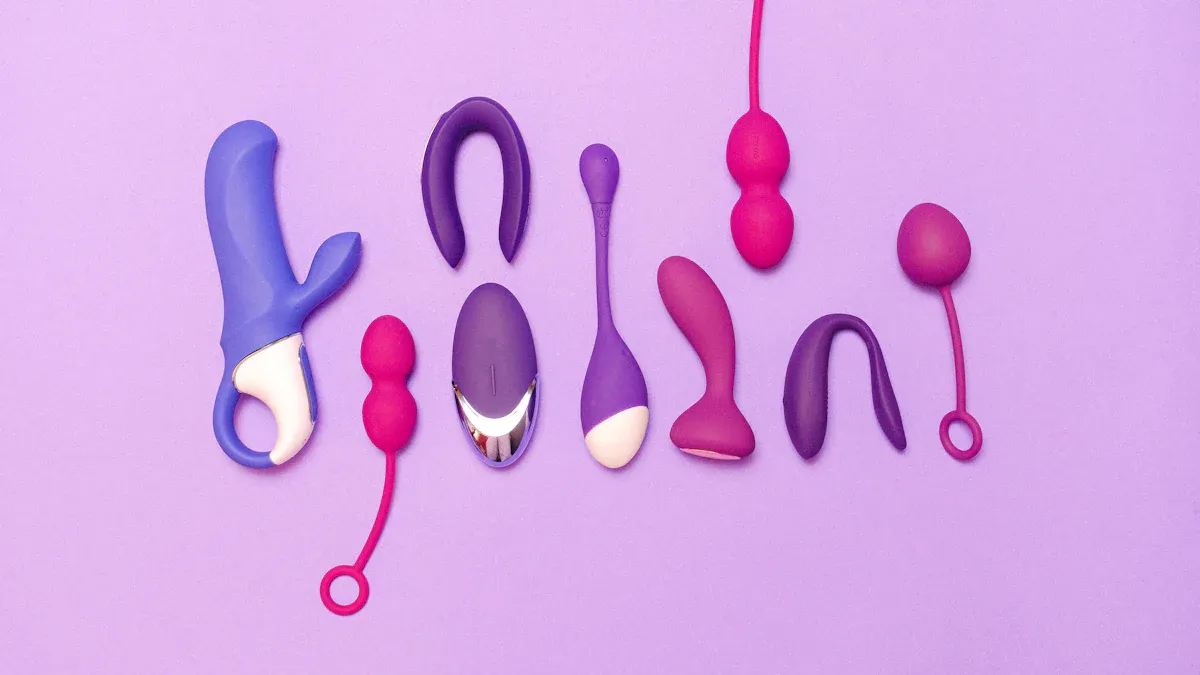
Non-Porous Alternatives
There are many safer choices than pvc sex toys. These choices use materials that do not have tiny holes. They are also safe for your body and do not cause allergies. These toys do not keep bacteria or chemicals inside. You can wash them easily and keep them clean.
Silicone sex toys use medical-grade silicone. They are soft, bendy, and safe. Bacteria cannot grow on them, and they last a long time.
Glass dildos are made from borosilicate glass. This glass is safe and does not have pores. You can boil it or put it in the dishwasher.
Stainless steel dildos are strong and safe. They do not have pores and are easy to wash. You can use soap and water or boil them.
Hard plastic, like ABS, is safe for your body. It does not have pores and is simple to clean.
Sealed wood dildos have a special cover. This cover keeps them safe and smooth.
You can see how these materials last and how to clean them in this table:
Material | Durability & Safety | Cleaning & Maintenance | Notes |
|---|---|---|---|
PVC | Has tiny holes, breaks easier | Cannot be fully cleaned | Might smell, not good for long use |
Medical-grade silicone | No holes, lasts a long time | Boil, bleach, or dishwasher | Do not use silicone lube |
Glass | Very strong and safe | Boil, soap, dishwasher | Good for playing with hot or cold |
Benefits of Switching
Using body safe sex toys helps your health in many ways. You are less likely to get infections, burning, itching, or pain. Nonporous dildos made from safe materials do not keep germs or mold. You can wash them well and use them again without worry.
Body-safe sex toys do not have toxins and do not cause allergies. They will not hurt your body or make you sick.
You can share nonporous dildos with others after cleaning. This keeps everyone safe from germs.
Medical-grade silicone and glass dildos last longer than PVC. They do not break or change shape.
These safer toys are better for the earth. Many can be recycled or break down over time.
Tip: Pick body-safe materials for your next dildo. You will stay healthy and have a safe, clean time every use.
PVC Dildo Safety Tips
Using Condoms
You can make your experience safer by always using condoms with a pvc dildo. This simple step creates a barrier between your body and the toy. Condoms help block bacteria and chemicals from reaching your skin. Health experts say this is the best way to lower risks from porous toys. Even if you do not share your dildo, a condom keeps you safe from chemical irritation and bacterial growth. If you wonder how to use a dildo safely, start with a fresh condom every time. Change the condom if you switch between partners or body areas.
🛡️ Tip: Condoms add an extra layer of safety, especially when you cannot replace your toy right away.
Cleaning and Care
Good hygiene keeps your playtime healthy. Wash your dildo with soap and water after every use. Antibacterial cleaners only clean the surface, so they cannot reach bacteria inside the pores. Do not trust claims about antimicrobial additives. These do not guarantee a hygienic toy and may cause skin reactions. Dry your toy well before storing it. Store it in a clean, dry place away from sunlight. This helps slow down wear and keeps your toy in better shape.
Step | What to Do |
|---|---|
Wash | Use soap and water |
Dry | Air dry completely |
Store | Keep in dry, cool place |
When to Replace
You should check your dildo often for signs of damage. Replace your toy if you see cracks, color changes, or if it feels sticky or oily. These signs mean the material is breaking down and is no longer safe. If you feel itching, burning, or discomfort during use, stop right away. Experts say you do not need to follow a set schedule for replacement. Instead, focus on the condition of your toy. Porous materials like PVC break down faster than safe, non-porous options. Switching to a non-porous dildo improves your hygiene and safety.
🚩 Note: Replace your pvc dildo at the first sign of wear to avoid health risks.
You now know that using a PVC dildo in 2025 still brings health risks. Experts warn that porous toys like PVC can trap bacteria and chemicals. You should look for safer options. Many sexual health professionals suggest switching to dildos made from nonporous materials such as silicone, glass, or stainless steel.
Choose dildos that meet safety standards and have clear labels.
Clean your toys with soap and water, and store them in a dry place.
Your health matters. Make choices that keep you safe and support your sexual wellness.


